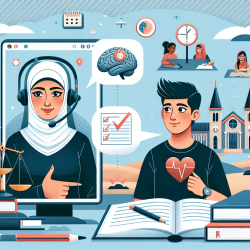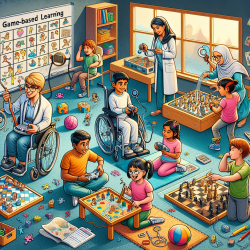Adolescent mental health is a critical concern globally, and the urgency to address this is even more pronounced in low-resource settings. The study titled Improving psychosocial distress for young adolescents in rural schools of Pakistan: study protocol of a cluster randomised controlled trial offers a valuable blueprint for practitioners aiming to enhance their skills and implement effective interventions. Let's delve into how you can leverage the findings from this study to make a meaningful impact on adolescent mental health.
Understanding the EASE Intervention
The Early Adolescent Skills for Emotions (EASE) intervention, developed by the World Health Organization (WHO), is a group-based psychological intervention aimed at reducing psychosocial distress among adolescents. This intervention is particularly beneficial in low-resource settings where access to specialized mental health services is limited.
Key Components of EASE
- Psychoeducation: Educating adolescents about mental health and emotional well-being.
- Stress Management: Techniques to manage stress effectively.
- Behavioral Activation: Encouraging positive behaviors and activities.
- Problem-Solving: Developing skills to address and resolve issues.
- Relapse Prevention: Strategies to maintain mental health improvements.
Implementing EASE in Your Practice
As a practitioner, you can adopt the EASE framework to enhance the mental health support you provide to adolescents. Here are some steps to consider:
- Training: Ensure that you and your team are trained in the EASE intervention techniques. WHO provides comprehensive training modules that can be adapted to your context.
- Collaboration: Work closely with schools, caregivers, and community stakeholders to create a supportive environment for adolescents.
- Monitoring and Evaluation: Use validated tools such as the Pediatric Symptom Checklist (PSC) to assess psychosocial distress and track progress over time.
- Continuous Improvement: Regularly review and adapt your intervention strategies based on feedback and outcomes.
Encouraging Further Research
While the EASE intervention shows promising results, it is crucial to continue research to refine and adapt these strategies to different contexts. Here are some areas for further exploration:
- Long-Term Impact: Investigate the long-term effects of the EASE intervention on adolescent mental health.
- Scalability: Assess the feasibility of scaling up the intervention in various settings, including urban and rural areas.
- Customization: Explore ways to tailor the intervention to meet the unique needs of diverse adolescent populations.
Conclusion
Implementing evidence-based interventions like EASE can significantly improve the mental health outcomes for adolescents, especially in low-resource settings. By integrating these strategies into your practice, you can make a profound difference in the lives of young people.
To read the original research paper, please follow this link: Improving psychosocial distress for young adolescents in rural schools of Pakistan: study protocol of a cluster randomised controlled trial.










